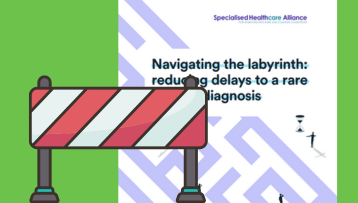Cabinet Secretary for Health and Well-Being,
The Scottish Government
Dear Mr Neil,
As the Scottish Government considers its response to the recent New Medicines Reviews, focusing on decisions made about which health treatments are funded within
the NHS, we must remember that the decisions they make could have major consequences for people who live with long term conditions across Scotland, and their carers.
The quality of life of many people who live with long term conditions including rare diseases that for decades have been untreatable, is at stake. For some of the conditions that our organisations represent, drugs have started to be developed that can significantly improve quality of life.
In the future, other new treatments could emerge that will substantially improve peoples’ lives. The real risk is that these new and future treatments may be put beyond reach by decisions that the Scottish Government will make in the coming weeks. It has been recommended that judgements made about the cost effectiveness of different treatments should make reference to whether they ‘substantially prolong life’. However, it can be difficult to supply this data when there is a lack of a generic research network for people who have long term conditions operating in Scotland. As a result, innovative therapies that could ultimately extend life expectancy may not be funded because the evidence is not immediately available at the time of the drug appraisal. We would therefore urge the Scottish Government to consider the requirement for such a network.
We also urge the Government to consider innovative approaches of how the views of
Scottish society can be taken into account when making these decisions. Greater Many drugs will enable people who live with long term conditions to return to work or study; enable them to take part in social activities and reduce the time that they have to spend in hospital, or their reliance on either social care support or unpaid family care, adopting a preventative approach to healthcare.
We are also concerned that although the reviews note the deficiencies of the quality adjusted life year (QALY) methodology to assess whether treatments are a good use of public money, the recommendation is to maintain the use of this measure when appraising new drugs without explicitly calling for more research into alternative systems to assess cost effectiveness.
NHS Scotland should allow access to treatments for people that both prolong life and improve its quality. We are concerned that the recommendations from these reviews risk failing to achieve either objective. The Scottish Government must seize this opportunity now.
Yours sincerely,
Ed Owen
Chief Executive of Cystic Fibrosis Trust









































































































































